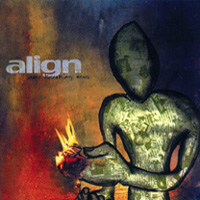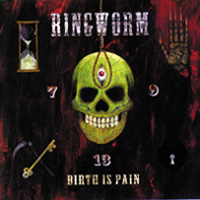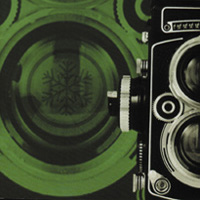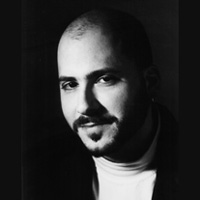 Monte Conner
Monte Conner
An interview with long-time A&R guy
by Tim Den
Love ’em or hate ’em, Roadrunner Records‘ influence on the metal scene is undeniable. Sure, they are responsible for Coal Chamber and Nickleback, but they also gave us Sepultura, Deicide, Obituary, and countless other metal benchmarks. And now, as a part of their reissues campaign, they’re reminding us just how much they matter with a string of re-releases by the likes of Pestilence, Exhorder, Mercyful Fate, Annihilator, and more. But why now? Why go back into the vaults when the label no longer signs ferocious/technical death metal acts? And what prompted the label to abandon their initial bread-and-butter “sound” for the current “mainstream” identity, anyway?
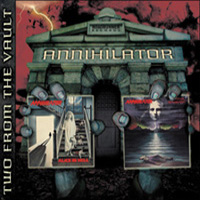 Why reissue all these albums now?
Why reissue all these albums now?
A few reasons: One, to bring back some of the titles that have been deleted for a long time, such as Exhorder and Pestilence. Two, to offer some of the older titles, like Obituary’s Slowly We Rot and Cause of Death at a lower price. We felt bad that some of the titles that were over 10 years old were still being sold at the regular price, so we decided to combine them and give the fans a deal.
Why something like Pestilence and not Believer?
Believe it or not, even when Believer was doing “well,” they never sold many copies. The Pestilence (reissue) isn’t selling many copies right now, either. (chuckles) There were a few others that we were considering… Gorguts, Gruntruck, etc.
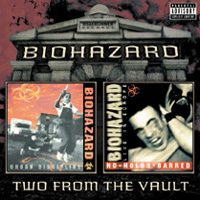 What about stuff like Cynic?
What about stuff like Cynic?
The next step in our reissues campaign is to take single albums – Cynic is one of the planned – and remaster them completely. The music, the artwork, the packaging, the liner notes, everything. The first one is going to be Disincarnate (Dreams of the Carrion Kind).
Some have wondered if this is the label’s way to regain “cred” from the underground…
When we started, death metal was selling really well and we were able to sign a lot of bands from that genre and build up the company. Titles like Deicide’s Legion and Sepultura’s Arise were selling around 100,000 copies, so I was signing death metal bands left and right. I signed Suffocation just cuz I heard their name circulating. But eventually, the market became saturated and the albums’ peaks hit the roof (around the mid-’90s)… and Roadrunner never set out to be the death metal label, and I never set out to be an A&R guy who only knows how to sign one type of band. Earache made it their goal very early on that they were gonna be the most extreme metal label, and they’ve done a great job doing it. We’ve been trying different stuff all along – like Gruntruck – but the scene wasn’t ready. Gruntruck was Nickleback back when the mainstream wasn’t ready for a Nickleback, but we saw the potential and we took it. Even with Coal Chamber, they were the first ones to push the nü metal sound after Korn. Of course, that led to people calling them Korn Chamber, but they were one of the pioneers nonetheless. We’ve always been on the forefront of all the goings-on.
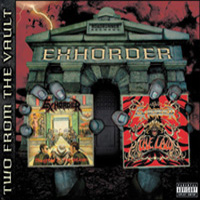 Not to mention that by branching out and signing different types of bands (more mainstream and better selling), we are able to finance the signings of other, heavier acts. I mean, we would never be able to keep a band like Spineshank (who sells pretty decently, but not great) on the label otherwise. We offer our bands a certain amount of comfort and stability, and we’re able to do so because of the income that something like Nickleback brings in.
Not to mention that by branching out and signing different types of bands (more mainstream and better selling), we are able to finance the signings of other, heavier acts. I mean, we would never be able to keep a band like Spineshank (who sells pretty decently, but not great) on the label otherwise. We offer our bands a certain amount of comfort and stability, and we’re able to do so because of the income that something like Nickleback brings in.
Tell me a little about how the label started, and when you came onboard.
The label started as a distribution company in the early ’80s, before there was an infrastructure for indie labels like Metal Blade and Restless to get their records into the European market. At that time, a guy like Brian Slagel (owner of Metal Blade) would’ve had to fly to each of the European countries, talk to separate distribution companies, set up individual deals with them, and then keep track of it all after coming home. Well, Roadrunner solved that problem by offering to handle all European matters for U.S. metal labels. We did that for a few years and were very successful at it. Eventually, we thought “why can’t we put out our own records?” So we signed Mercyful Fate, the label’s first band, and did really well with them.
 The U.S. office opened around ’85, and I was hired in ’86. Sepultura was the second band I signed. I used to play them on my college radio show in NY, and obviously this was a very important signing for us. They basically built the label.
The U.S. office opened around ’85, and I was hired in ’86. Sepultura was the second band I signed. I used to play them on my college radio show in NY, and obviously this was a very important signing for us. They basically built the label.
What are some of your favorite – or fondest – bands over the years?
Sepultura, obviously. And Deicide. They were the first band I signed that used blast beats! Glen Benton walked into my office one day – I was on the phone – threw a demo on my desk and said “sign us, asshole.” I played the tape and loved it. You just can’t touch their first three albums. I heard their new one for Earache and it’s totally amazing. A true return to form. It’s not as catchy as their older stuff, but it’s totally balls-out brutal. I have nothing but the best wishes for them.
(902 Broadway New York, NY 10010)

